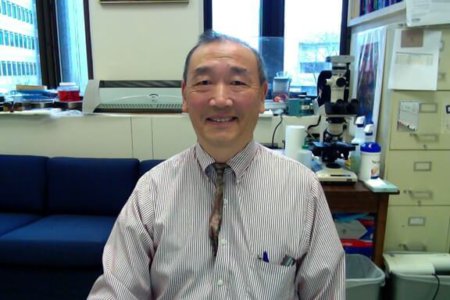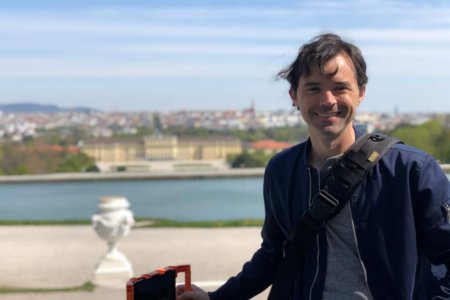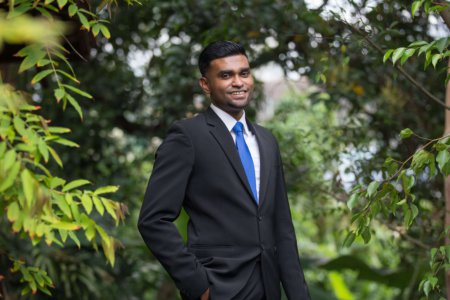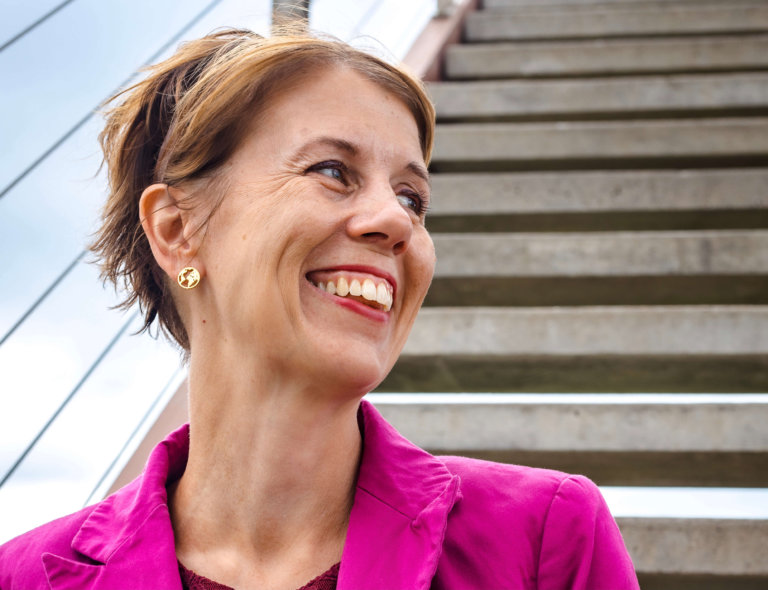
Wisconsin Teacher of the Year 2020 award recipient Erin McCarthy has a future-forward approach for a subject that’s mostly focused on the past. Her teaching philosophy involves a holistic discussion of the subject, where her students get to connect to their place in history.
Even reluctant learners are hooked, when she lays out their relationship to diverse figures whose voices have been left out of history. “I want to make sure that every student has their voice heard, but also see themselves reflected in America’s story,” McCarthy said in an article.
Her hard work and innovation has not gone unnoticed. The EdD candidate at Walden University recently bagged a Fulbright Distinguished Award to conduct research in Greece on how its school can be more inclusive of immigrants and refugees. Below we talk to this teacher of the year on her interest in history, her Fulbright research project and what she expects life in Greece to be like:
Where does your interest in history stem from? Is there a personal backstory behind this?
My interest in history is really an interest in human stories. Before I was a classroom teacher, I worked as a museum education manager in the Chicago area.
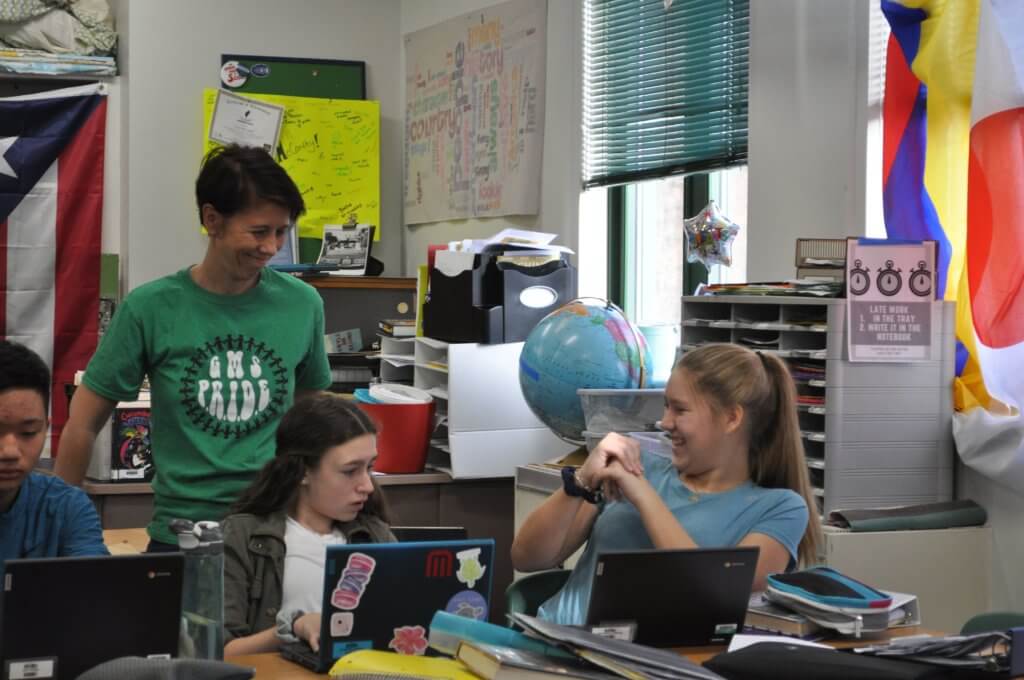
McCarthy wants to make sure that every student has their voice heard and see themselves reflected in America’s story. Source: Erin McCarthy
I love the stories of history but I’m really passionate about helping individuals today see themselves in history. How did individuals overcome challenges? How did groups come together to bring about change?
I loved digging up stories from the past of the remarkable things people had done. When I managed programmes at the Children’s Museum of Immigration in Chicago, I liked the excitement on the faces of children when I told them their immigrant experience made them experts.
Walk us through winning the Fulbright Distinguished Awards in the Teaching Research Programme. What was the application process like?
The application process required a lot of reflection at first. Since being named the Wisconsin Teacher of the Year in 2020, I’ve had so many opportunities to reflect on my own journey as an educator.
When planning the short-answer questions, I made concept maps to be sure I wasn’t repeating myself and then wrote and edited until each word conveyed the message I wanted. The Distinguished Award in Teaching Research Programme also has the inquiry project component.
I was about six months into my doctoral programme when I submitted my application in February. My research interests have always focused on inclusion, the whole child, valuing multiculturalism, and amplifying the educator voice.
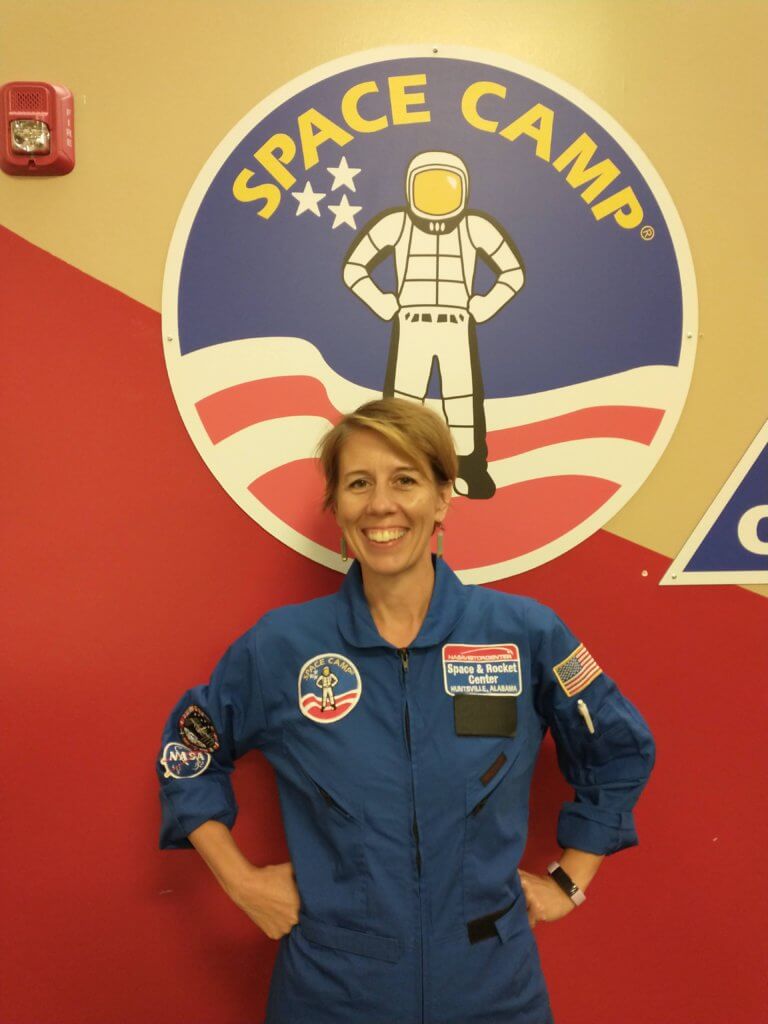
The EdD candidate at Walden University recently bagged a Fulbright Distinguished Award to conduct research in Greece on how its school can be more inclusive of immigrants and refugees. Source: Erin McCarthy
I researched how these topics were being addressed in Greece and this led to my inquiry project. In May, I received an email saying that the team in Greece wanted to interview me. So, I commandeered a closet in my school to talk to them while a colleague took over my class.
What made you choose to conduct research in Greece?
I’ve always wanted to go to Greece. So, when I saw it on the list of countries, I was excited. Then, in researching the intersection of multicultural education, educator mindset and inclusion, I came across the concept of intercultural schools in Greece.
The more I dug into the story of immigration and refugees there, the clearer it was that the US needs to watch their country’s progress. Immigration and the movement of refugees is a global issue that we can’t ignore.
What are you looking most forward to doing in Greece besides your research?
I’m excited to try new foods as a start but I can’t wait to immerse myself in the culture. It’s the most amazing part of this opportunity and to share it with my three children who will join me in Greece. A dream come true.
What is your research under the Fulbright Award going to focus on? What are some key things you can highlight?
The purpose of my research is to understand how policy and pedagogy intersect in the classroom to best facilitate teacher mindset shifts to an asset-based view towards refugees and immigrants’ inclusion.
My research questions are: What behaviour do educators exhibit when they have an asset-based view of inclusive education policies and classroom pedagogy? What teacher attitudes and dispositions contribute to successful inclusive classroom environments?
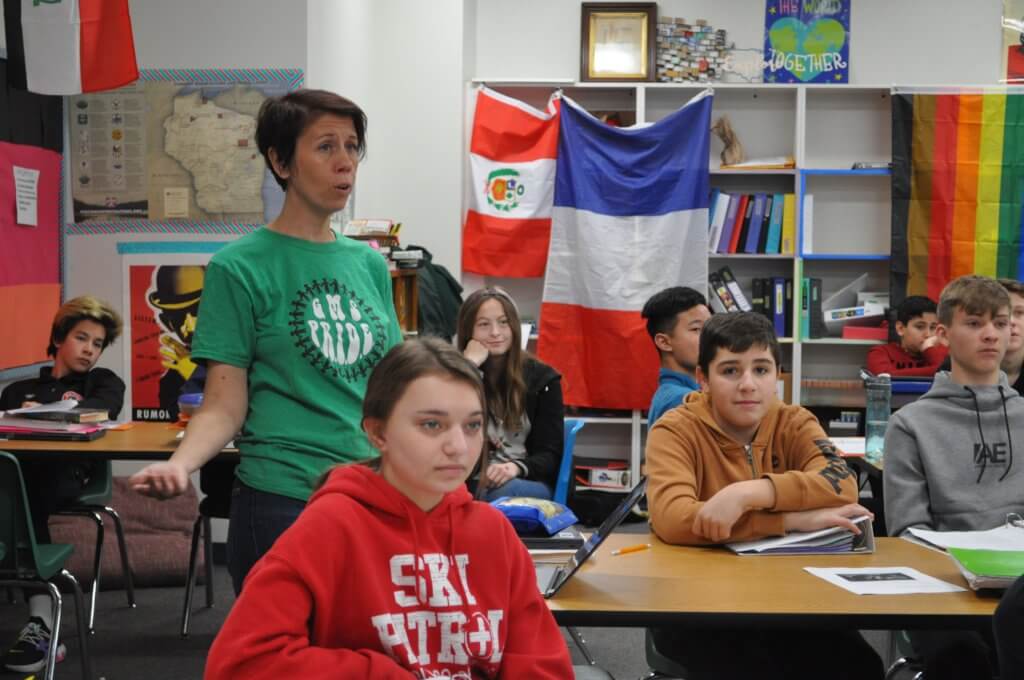
McCarthy pictured here in class with her eighth grade students. Source: Erin McCarthy
I’m looking forward to observing in a classroom and talking to teachers. I’ve had the chance to speak to many educators in the past few years and their creativity, ingenuity, and passion always excites and inspires me.
I’m excited to learn from them so the world knows more about the power of the individual teacher to transform lives.
What things have you prepared ahead of your arrival there?
I haven’t really started the preparation yet. Step one will be to meet with my human resources director and be sure there is a smooth transition for my students.
I’m slowly starting to learn some Greek but definitely need to put in more effort there. If life slows down at some point, I will do some research and create a top 10 list of things to do there.
What are some important American historical events that are important to know on a global scale?
My favourite time period to study is the Great Depression because it was a global event. I think it’s worth studying how the US handled the crisis differently than the rest of the world.
The community where I teach was built as part of Franklin Roosevelt’s New Deal which makes it really unique. However, as you dig into the New Deal programmes, you discover how discriminatory they were.
The people of colour were left out. I also think the Civil Rights movement is essential to understand and focus on key moments like Rosa Parks and the Montgomery Bus Boycott or Dr. King and the March on Washington. I find the stories of individual courage most inspiring.
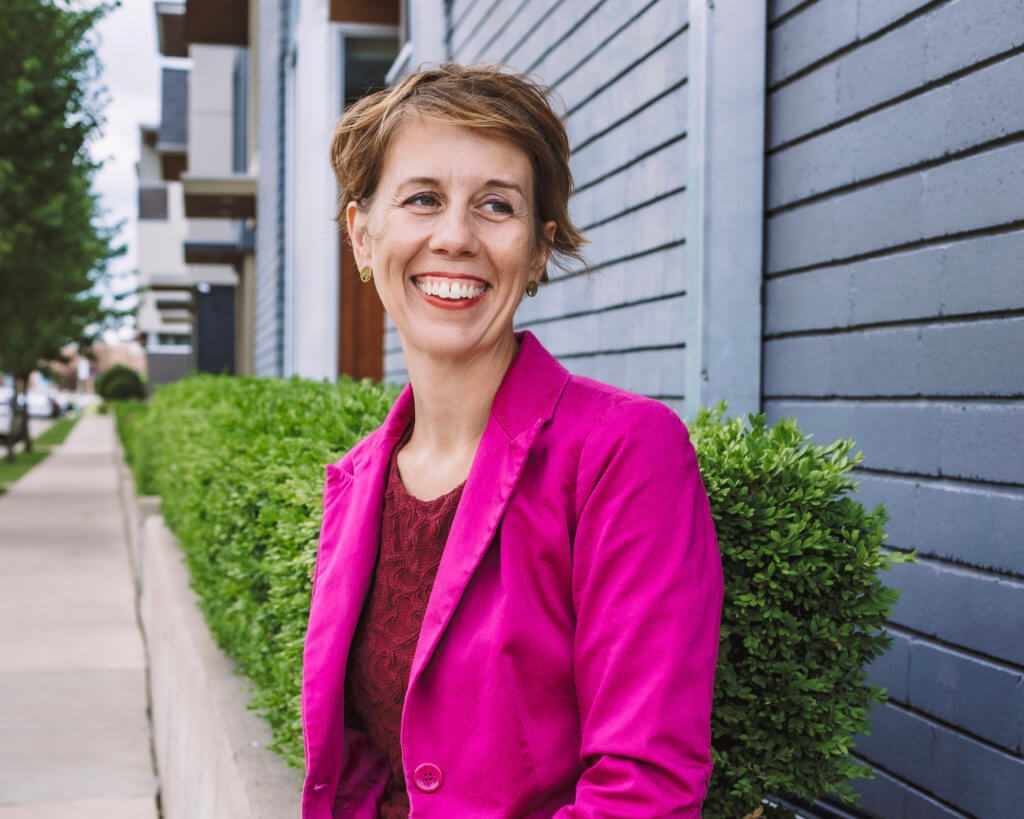
“My interest in history is really an interest in human stories. Before I was a classroom teacher, I worked as a museum education manager in the Chicago area,” she says. Source: Glenda Mitchell
What’s one thing from Greece you plan to bring back home?
My colleagues and friends have inspired me to expand my website and blog about my experience along with sharing lots of photos. I’d like to master some Greek recipes and cook for my friends and family when we return.
What’s something you’ll miss from home and how do you plan to substitute it?
I’ll miss my family, friends and colleagues. Living through the pandemic really made us realise how important these connections are.








